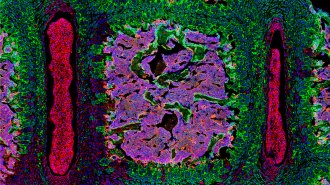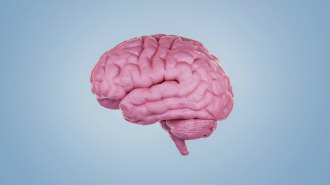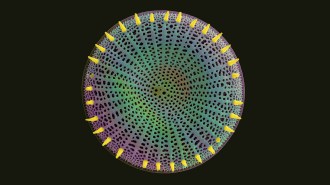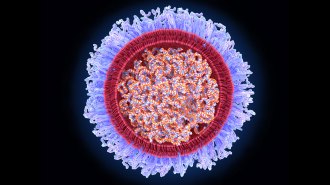Search Results for: seek
Skip to resultsCan’t find what you’re looking for? Visit our FAQ page.
5,121 results for: seek
-
 Health & Medicine
Health & MedicineNewly identified stem cells can lure breast cancer to the spine
A new type of stem cell discovered in mice and humans might explain why cancer that spreads to other body parts preferentially targets the spine.
By Meghan Rosen -
 Physics
Physics50 years ago, scientists dreamed of lasers that could kick off nuclear fusion
In the 1970s, lasers that could initiate nuclear fusion were a distant dream. Now, scientists are using such lasers to achieve fusion “ignition.”
-
 Space
SpaceClara Sousa-Silva seeks molecular signatures of life in alien atmospheres
Quantum astrochemist Clara Sousa-Silva studies how molecules in space interact with light, offering clues to what distant objects are made of.
By Elise Cutts -
 Physics
PhysicsPhysicists get a first glimpse of the elusive isotope nitrogen-9
With seven protons and two neutrons, the lopsided atomic nucleus of nitrogen-9 pushes the limits of what can even be considered a nucleus.
By Elise Cutts -
 Math
Math‘Is Math Real?’ asks simple questions to explore math’s deepest truths
In her latest book, mathematician Eugenia Cheng invites readers to see math as more than just right or wrong answers.
By Evelyn Lamb -
 Health & Medicine
Health & MedicineThe weight-loss drug Wegovy may also help treat addiction
Recent studies in mice and rats suggest that semaglutide drugs, like Wegovy, can curb some addictions. Several human trials are underway.
-
 Neuroscience
NeuroscienceWhat a look at more than 3,000 kinds of cells in the human brain tells us
A wide-reaching look at the cells that build the brain, detailed in 21 studies, showcases the brain’s cellular diversity and clues about how it works.
-
 Health & Medicine
Health & MedicineFlint grapples with the mental health fallout from the water disaster
The water crisis started almost a decade ago. Residents of Flint, Mich., are still healing from the disaster — and caring for their own.
-
 Health & Medicine
Health & MedicineU.S. opioid deaths are out of control. Can safe injection sites help?
A new NIH study will evalute the only two officially sanctioned sites, in New York City, and a future site in Providence, R.I.
By Tara Haelle -
 Microbes
MicrobesWatch: Recent microbial discoveries are changing our view of life on Earth
Videos capture the strange movements and predatory styles of protists — among the closest microbial cousins to multicellular life.
By Susan Milius -
 Climate
ClimateCapturing methane from the air would slow global warming. Can it be done?
Removing methane from the atmosphere requires different technology from removing carbon dioxide. Scientists are taking on the challenge.
-
 Health & Medicine
Health & MedicineEarly mRNA research that led to COVID-19 vaccines wins 2023 medicine Nobel Prize
Biochemists Katalin Karikó and Drew Weissman devised mRNA modifications to make vaccines that trigger good immune responses instead of harmful ones.